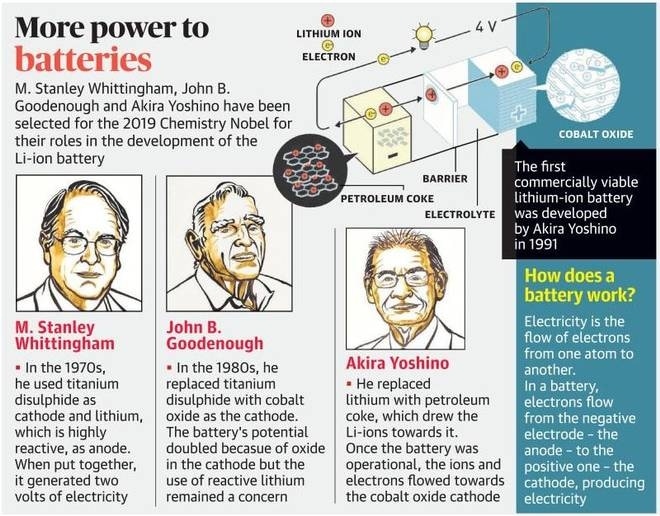Science & Technology
Nobel Prize in Chemistry 2019
- 15 Oct 2019
- 2 min read
The 2019 Nobel Prize in Chemistry has been jointly awarded to John B Goodenough, M Stanley Whittingham and Akira Yoshino for the development of lithium-ion batteries.
- Through their work, this year’s Chemistry Laureates have laid the foundation of a wireless, fossil fuel-free society.
- In the early 1970s, Dr. Whittingham developed the first functional lithium battery.
- Dr. Goodenough doubled the lithium battery’s potential, creating the right conditions for a vastly more powerful and useful battery.
- Dr. Yoshino succeeded in eliminating pure lithium from the battery, instead basing it wholly on lithium ions, which are safer than pure lithium. This made the battery workable in practice.
- The result was a lightweight, hardwearing battery that could be charged hundreds of times before its performance deteriorated.
- The advantage of lithium-ion batteries is that they are not based upon chemical reactions that break down the electrodes, but upon lithium ions flowing back and forth between the anode and cathode.
- The lithium-ion batteries have reshaped energy storage and transformed cars, mobile phones and many other devices in an increasingly portable and electronic world.





